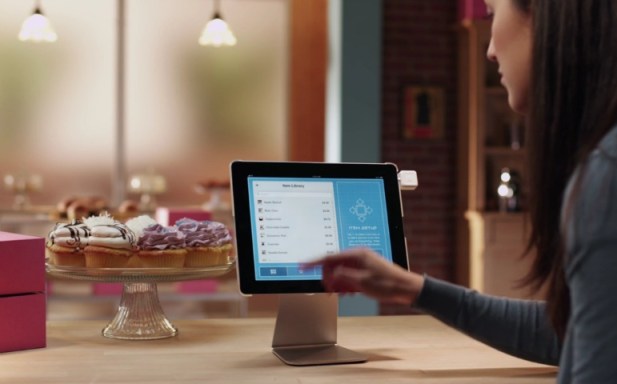[aditude-amp id="flyingcarpet" targeting='{"env":"staging","page_type":"article","post_id":416475,"post_type":"story","post_chan":"none","tags":null,"ai":false,"category":"none","all_categories":"business,","session":"D"}']
Disclaimer: Rocky Agrawal holds a variety of short positions in Groupon. You can find a full list of his disclosures here and in his author bio.
I’ve spent much of the last year talking about how the sites small businesses rely on to advertise and promote themselves — think Yelp and Groupon — are failing them. In fact, helping small businesses at the local level is extremely challenging for technology companies, for the following reasons:
AI Weekly
The must-read newsletter for AI and Big Data industry written by Khari Johnson, Kyle Wiggers, and Seth Colaner.
Included with VentureBeat Insider and VentureBeat VIP memberships.
- Scale. There are millions of small businesses in the country and trying to come up with a product and distribution strategy to reach them can be difficult.
- Lack of technology adoption. Many businesses still do things on pen and paper. Many don’t have Internet connectivity. Business owners are focused on running their business, not trying out Silicon Valley’s flavor of the week.
- Balancing value. Most local products need to create value for consumers, merchants, and the company providing the technology. Getting this balance right is very tricky. You can get massive consumer adoption by playing cash-flow games and spending hundreds of millions on marketing. But in order to build a sustainable business, you need to strike a good balance.
Here are some of my favorite companies in local:
1. Twitter. Most people don’t think of Twitter as a local company, but I think it (along with Facebook) has the most potential to do local right. Although Twitter hasn’t focused on local to date, its new partnership with American Express is a great sign. The massive scale of Twitter and its simplicity mean that small businesses like The Dosa Republic can advertise on the Internet cost effectively. (I’ve been pondering how to conjure dosas with Twitter since 2007.)
2. American Express. Although it’s not a startup, it’s definitely been acting like one. AmEx has had some of the most innovative local products over the last two years. The company has struck important partnerships with Facebook, Twitter and foursquare. Its Small Business Saturday promotion in the fall promotes the idea of shopping locally. Its social media team is on top of Twitter. I’ve met many of AmEx’s top execs, and they understand the future of commerce and online better than many startup execs I meet.
3. Square. Square has successfully credit-card enabled small businesses that were previously cash only. The pricing and product have simplified byzantine credit card rate structures into one easy-to-understand price. Square understands the whole consumer experience like no company other than Apple. Every detail of the experience is nearly perfect, including the packaging they use to ship the Square reader. Square’s Daniel Gatsby is one of the most talented designers I’ve met; I’d work with him on any project, any day.
4-5. Edo Interactive and Swipely. Card-linked offers are the right way to do promotions. Although American Express has made the biggest splash in the space, edo and Swipely are two other companies I like in the space. Edo is approaching the problem by partnering with financial institutions like Ally Bank (more banks are on the way). Swipely is working directly with merchants. Its San Francisco trial is worth checking out.
6. Constant Contact. The email marketing company lets small businesses keep in touch with local businesses. Wayne’s Chicago Red Hots, a Portland bar, had a disastrous experience with Groupon. They are using Constant Contact’s tools to engage with their own list of 1,300 customers. Constant Contact recently introduced a new deals product that is sustainable and makes sense for small businesses.
[aditude-amp id="medium1" targeting='{"env":"staging","page_type":"article","post_id":416475,"post_type":"story","post_chan":"none","tags":null,"ai":false,"category":"none","all_categories":"business,","session":"D"}']
7-9. Eat24Hours, GrubHub, and Seamless. Ordering takeout and delivery has always been a chore. Menus aren’t readily available. You have to deal with a hurried order-taker who is taking orders in between cooking and serving in-house customers. Eat24Hours, GrubHub, and Seamless provide order-flow services and easy-to-use interfaces for consumers. Seamless’ iPad app is one of the most beautiful I’ve seen. The big challenge for these companies is keeping consumer acquisition costs below lifetime value. LivingSocial recently launched its own entry into the space.
10. Hotel Tonight. Deals can make a lot of sense when you have perishable inventory like a hotel does. Hotel Tonight’s concept is simple: matching last-minute travelers with that perishable inventory to create a win-win. Hotel Tonight also has a beautiful iPad app. CEO Sam Shank is brilliant.
11. OpenTable. The reservation site has been playing the long game in local. It’s my go-to example for success in a tough space. That it’s been around since 1998 is telling. It solves part of the inefficiency in restaurants and makes it easy for consumers to make and change restaurant reservations. In addition to reducing staffing costs and making operations more efficient, it provides an important distribution function. If a restaurant isn’t on OpenTable in San Francisco, it might as well not exist for me when I’m planning a nice meal.
12. Savored. The restaurant discount site lets you get 30% off your entire check at restaurants and is still profitable for restaurants. Because the discounts can be restricted to off-peak times, it reduces the risk of cannibalizing full-price traffic for discounted traffic. Interests between consumers and merchants are aligned: the more you spend, the more you save and the more the merchant makes. Contrast that with the daily deal model where consumers have an incentive to spend only up to the voucher value.
[aditude-amp id="medium2" targeting='{"env":"staging","page_type":"article","post_id":416475,"post_type":"story","post_chan":"none","tags":null,"ai":false,"category":"none","all_categories":"business,","session":"D"}']
[Image of Square Register from Square]
VentureBeat's mission is to be a digital town square for technical decision-makers to gain knowledge about transformative enterprise technology and transact. Learn More
